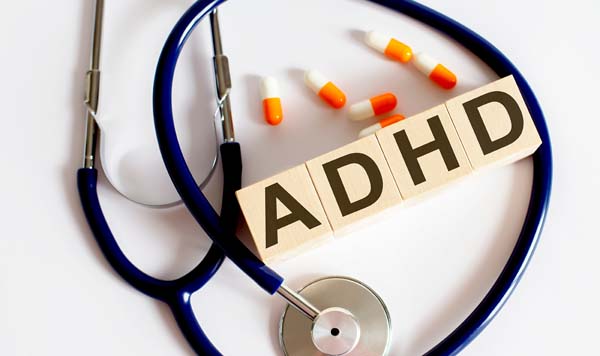Impulse ControlAltamonte Springs, FL
People with impulse control problems have trouble controlling their behaviors or emotions. This can cause people to perform impulsive actions repetitively despite negative consequences. With the right treatment, patients can learn to manage their symptoms and improve their quality of life.
Treatment for impulse control is available at Florida Psychiatric Associates in Altamonte Springs and the surrounding area. Our team can develop a personalized treatment plan for your needs. Call us today at 407-960-5633 to learn more about our services or schedule an appointment.
Impulse Control Problems
People having trouble with impulse control will also experience difficulty attempting to resist engaging in certain activities and behaviors. Having issues with impulse control can lead to people reacting to stimuli quickly and without foresight. They may experience the sudden and forceful urge to do something that conflicts with societal norms, such as unplanned or risky behavior.
People with impulse control issues may also experience less sensitivity to the immediate or long-term consequences of their actions. Impulsive behaviors may occur repeatedly and quickly, adversely affecting a person’s life. Fortunately, working with a psychiatrist can help people receive the strategies and treatment they need to regain control over their lives.
Symptoms of Impulse Control
Symptoms of impulse control issues typically become apparent during childhood or adolescence. However, it is also possible for symptoms not to show up until adulthood. The symptoms of impulsivity issues can cause problems at school, work, and relationships with others. Generally, symptoms of impulsivity issues are grouped into three categories: behavioral, cognitive, and social and emotional symptoms.
- Behavioral Symptoms: People with these symptoms may exhibit aggressive behaviors, steal, lie, and engage in risky or promiscuous behavior.
- Cognitive Symptoms: These symptoms may include obsessive behavior and difficulty concentrating or remaining organized.
- Social and Emotional Symptoms: People with social and emotional symptoms may experience low self-esteem, social isolation, detachment, mood swings, and anxiety.
Seeking Treatment
Receiving treatment for impulse control is crucial to managing symptoms. People struggling with impulse control will experience tension that builds up until they can no longer resist it. However, the sense of relief after acting on an impulsive behavior does not last long.
Following an impulsive behavior, people may feel guilt or shame. When done repeatedly, impulse control issues can lead to greater emotional distress or regret. People with impulsive behavior that becomes unmanageable or disrupts their everyday life should not hesitate to seek professional help. Our psychiatrist can provide patients with the tools and coping strategies to regain control over their lives.
Types of Treatment
Fortunately, various treatments can help people address impulse control issues, such as psychotreatment. In treatment, patients will also learn techniques to control their impulses and develop better self-control. Cognitive-behavioral treatment (CBT) is one type of psychotreatment that can help patients effectively mitigate the negative effects of impulse control issues. CBT allows people to determine their behavioral triggers and gain the tools they need to manage their responses.
Certain medications may also aid in controlling impulsive behaviors, such as antidepressants or mood stabilizers. The optimal treatment plan will vary for each patient depending on their unique needs and preferences. Our team can provide patients with a full evaluation and customized treatment plan. Our psychiatrist can help patients develop the skills they need to overcome their need for instant gratification, which leads to impulsive behaviors.
Causes and Risk Factors
The decision-making process is complex, and impulsivity causes are not always possible to determine. However, research has shown that brain connectivity and the prefrontal lobe may have a link to impulsive behavior. Other possible causes may include physical conditions such as a brain lesion or stroke.
There are also internal or external triggers that can increase the risk of impaired impulse control, such as underlying neurological vulnerabilities and environmental stressors. Although anyone can have issues with impulse control, some people have a higher risk than others, including men and people with a genetic predisposition, chronic drug or alcohol use, exposure to aggression, or being subjected to neglect. Additionally, chemical imbalances and certain mental health disorders may contribute to impulsivity.
Call Us Today
If you have difficulty controlling impulsive urges, do not hesitate to seek treatment. Our team at Florida Psychiatric Associates is here to help. Call us today at 407-960-5633 to learn more about our services or schedule an appointment.
Frequently Asked Questions
How do impulsive behaviors differ in children and in adults?
Impulsive behaviors in adults are more intense than in children. As a child, what may start as some aggression and outbursts can develop into more disruptive and destructive behavior as an adult. Impulse control issues in children typically manifest as classroom outbursts, fighting with other children, and not completing schoolwork. Impulse control behaviors in adults may appear as uncontrolled gambling, hypersexuality, internet addiction, pyromania, or excessive shopping.
How can antidepressants help patients with impulse control?
People who struggle with impulse control experience the urge to engage in impulsive behavior. This can lead to growing irritability and agitation. Antidepressants can help address this irritability.
How can mood stabilizers help with impulse control?
There is not much clinical evidence of mood stabilizers successfully treating impulse control problems. However, some people have experienced benefits. These drugs may reduce a person’s anxiety to minimize the urge to engage in impulsive behavior.
Is all impulsive behavior something to worry about?
No, everyone acts impulsively at times. However, people who struggle with impulse control regularly and experience negative consequences should seek professional help. Our psychiatrist can evaluate the patient to determine whether their impulsivity is concerning or impairing enough to require treatment.
What are some examples of impulse control disorders?
According to the DSM-5, five disorders are considered impulse control disorders. These disorders include oppositional defiant disorder (ODD), intermittent explosive disorder (IED), conduct disorder (CD), kleptomania, and pyromania. ODD is common in children and causes difficulty controlling emotions or behaviors. IED is more common in late childhood or teenage years and causes moments of anger or aggression. People with CD tend to display rebellion, disobedience, and aggression. Kleptomania is an urge to take things that do not belong to you, while pyromania is the compulsion to set things on fire.
Contact Us
Florida Psychiatric Associates is located at
498 Palm Springs Dr Ste 100-127
Altamonte Springs, FL
32701





